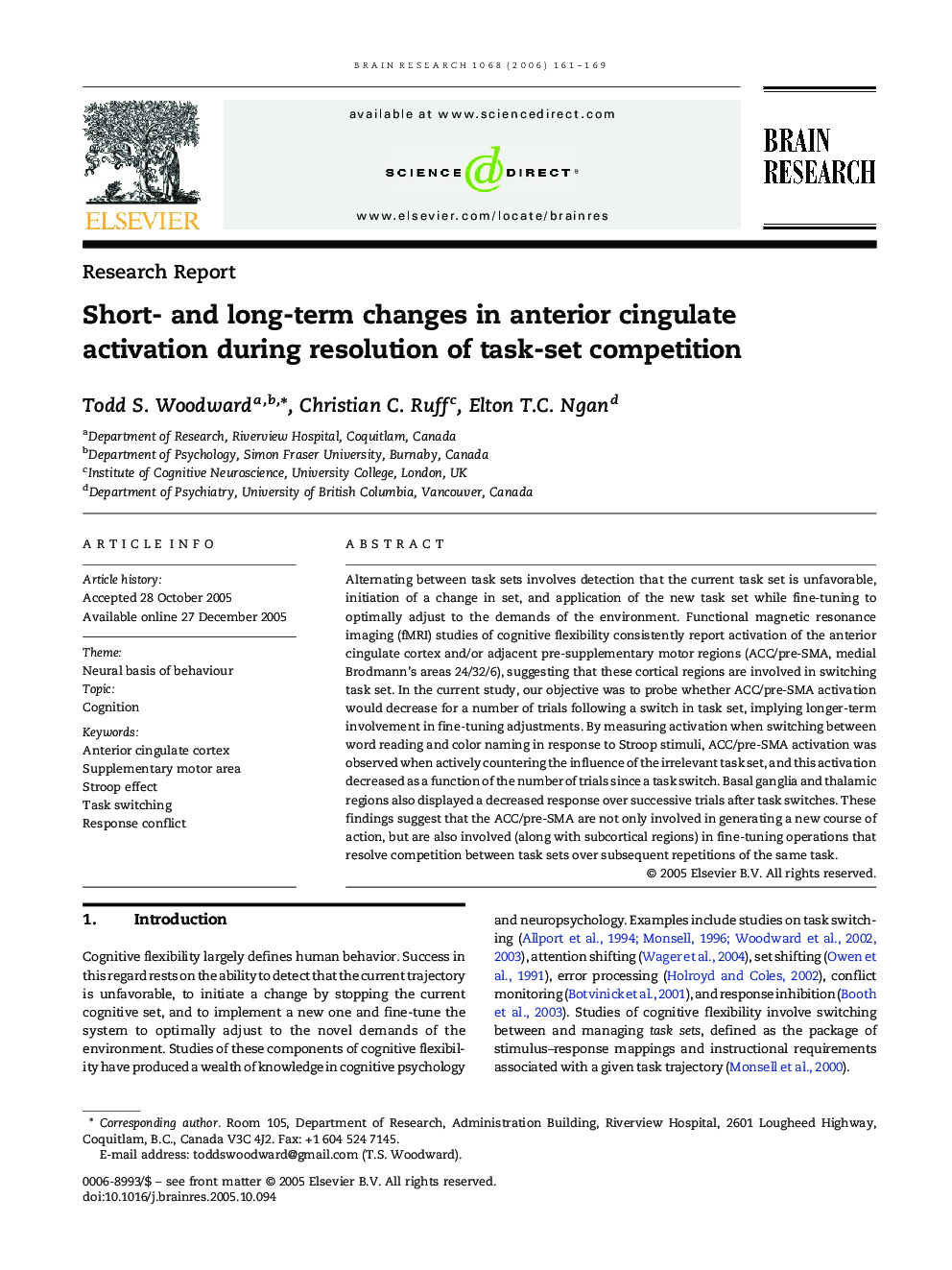| Article ID | Journal | Published Year | Pages | File Type |
|---|---|---|---|---|
| 4333536 | Brain Research | 2006 | 9 Pages |
Alternating between task sets involves detection that the current task set is unfavorable, initiation of a change in set, and application of the new task set while fine-tuning to optimally adjust to the demands of the environment. Functional magnetic resonance imaging (fMRI) studies of cognitive flexibility consistently report activation of the anterior cingulate cortex and/or adjacent pre-supplementary motor regions (ACC/pre-SMA, medial Brodmann's areas 24/32/6), suggesting that these cortical regions are involved in switching task set. In the current study, our objective was to probe whether ACC/pre-SMA activation would decrease for a number of trials following a switch in task set, implying longer-term involvement in fine-tuning adjustments. By measuring activation when switching between word reading and color naming in response to Stroop stimuli, ACC/pre-SMA activation was observed when actively countering the influence of the irrelevant task set, and this activation decreased as a function of the number of trials since a task switch. Basal ganglia and thalamic regions also displayed a decreased response over successive trials after task switches. These findings suggest that the ACC/pre-SMA are not only involved in generating a new course of action, but are also involved (along with subcortical regions) in fine-tuning operations that resolve competition between task sets over subsequent repetitions of the same task.
